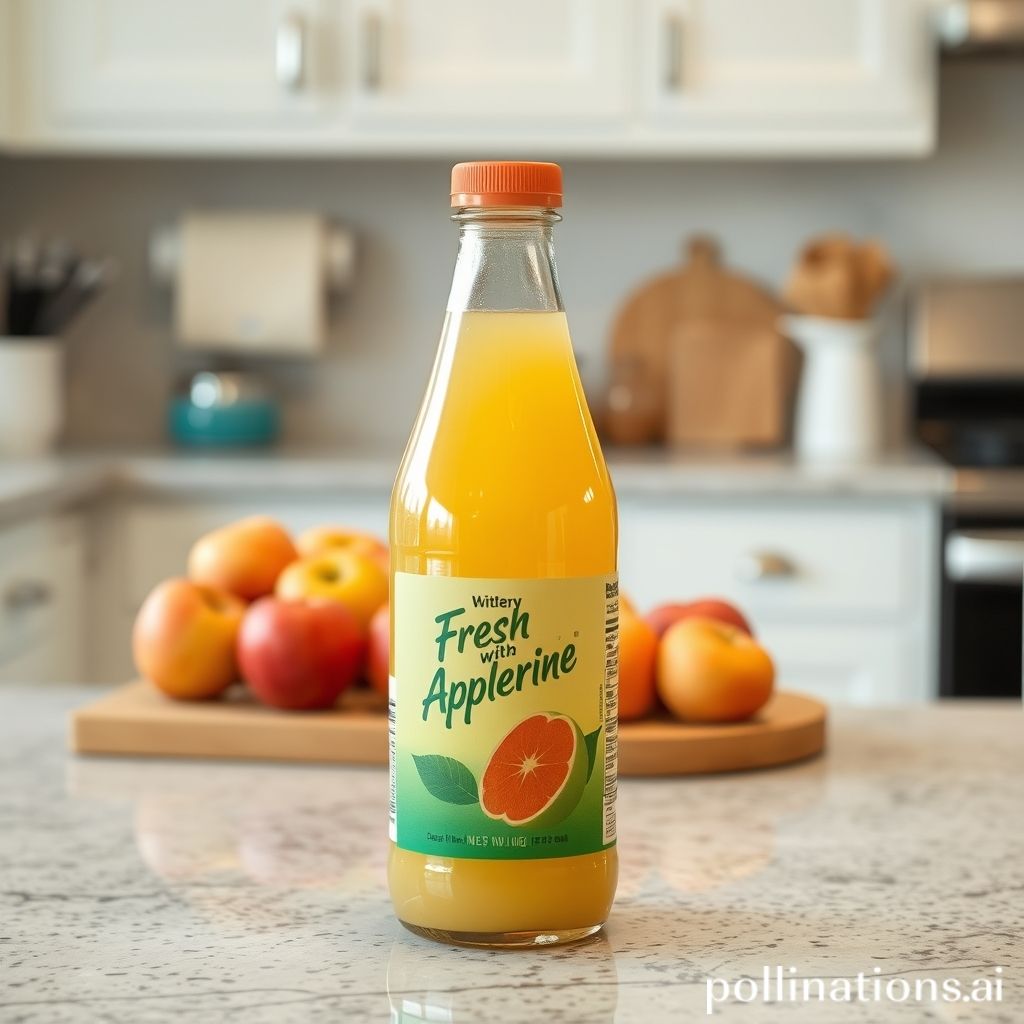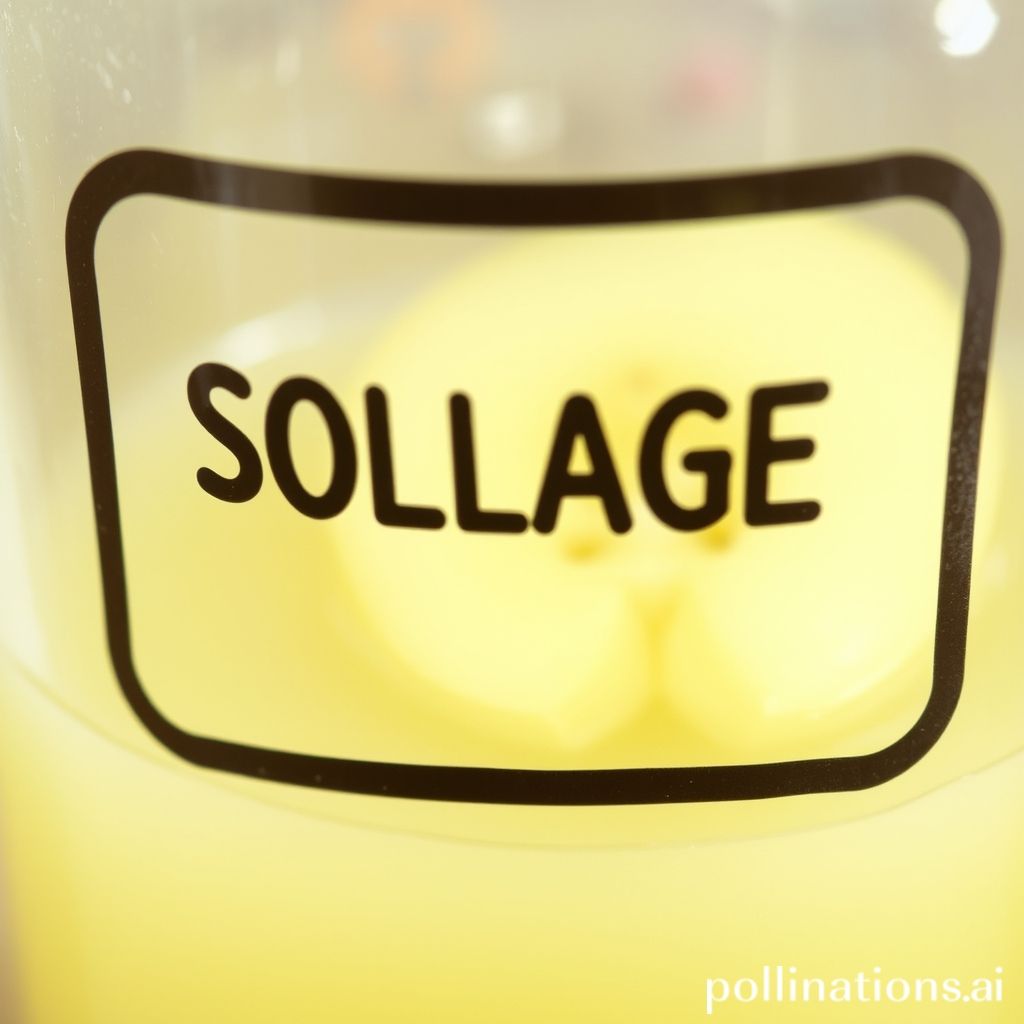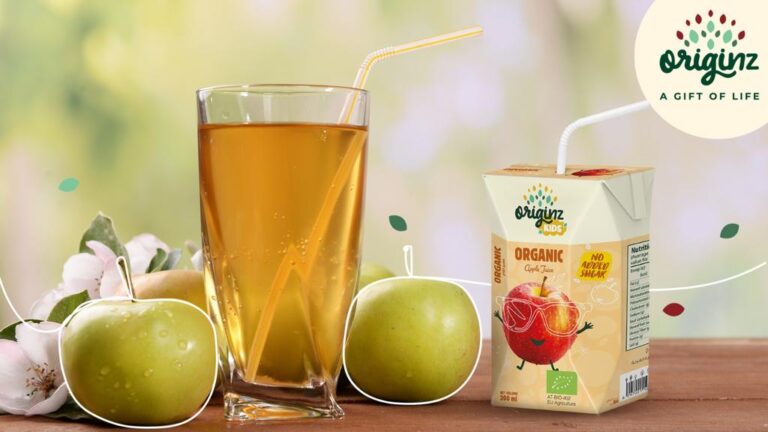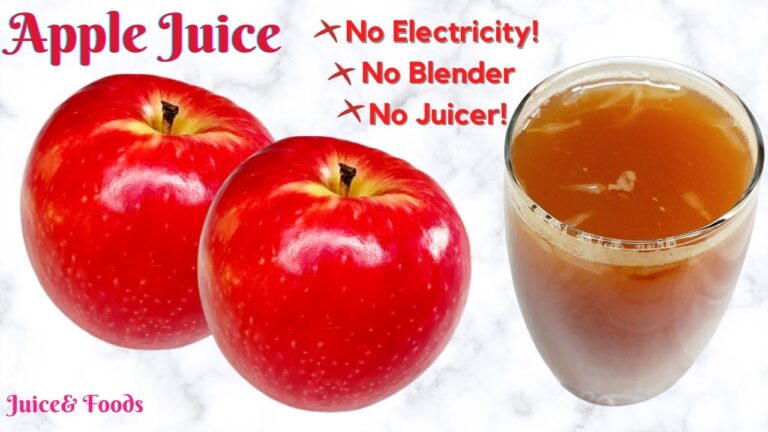Fresh Apple Juice Shelf Life: How Long Can You Safely Store It?
[su_note note_color=”#fb8e00″ text_color=”#000000″ radius=”12″]
Relating to fresh apple juice, knowing its shelf life is crucial. People want to understand how long they can safely store this delightful beverage before it starts to go bad or becomes unfit for consumption.
Grasping the factors that affect its shelf life, such as temperature, packaging, and pasteurization, can help ensure that the quality and safety of fresh apple juice are maintained. By properly storing fresh apple juice and being aware of signs of spoilage, individuals can enjoy this refreshing drink for an extended period. This article aims to provide valuable information on how to maximize the shelf life of fresh apple juice and keep it at its best.
[su_box title=”
II. Proper storage includes keeping the juice in an airtight container and ensuring it is not exposed to direct sunlight or extreme temperatures.
III. If the apple juice starts to smell or taste off, or if there are any visible signs of mold, it is best to discard it to avoid any potential health risks.[/su_box]

Factors That Affect the Shelf Life of Fresh Apple Juice
1. Temperature
The shelf life of fresh apple juice is greatly influenced by temperature. The temperature at which the juice is stored plays a crucial role in preserving its quality.
a. Ideal Storage Temperature for Fresh Apple Juice
To maximize the shelf life of fresh apple juice, it is recommended to store it at a temperature between 32°F (0°C) and 40°F (4°C). This temperature range helps slow down the growth of microorganisms that can cause spoilage.
b. Effects of High Temperatures on Fresh Apple Juice
Exposing fresh apple juice to high temperatures can significantly reduce its shelf life. Heat can accelerate the growth of bacteria and yeast, leading to fermentation and spoilage. It is important to avoid storing fresh apple juice at temperatures above 50°F (10°C) to ensure its quality and safety.
2. Packaging
Proper packaging is essential for maintaining the quality and extending the shelf life of fresh apple juice.
a. Airtight Containers for Fresh Apple Juice
Using airtight containers is crucial to prevent oxygen exposure, which can lead to oxidation and deterioration of the juice. Airtight containers also help keep contaminants at bay and maintain the freshness of the juice for a longer period.
b. The Impact of Exposure to Light on Fresh Apple Juice
Exposure to light, especially sunlight, can degrade the quality of fresh apple juice. UV rays present in sunlight can break down the juice’s nutrients and result in off-flavors. It is recommended to store fresh apple juice in opaque or dark-colored containers to minimize light exposure and preserve its quality.
3. Pasteurization
Pasteurization plays a significant role in extending the shelf life of fresh apple juice.
a. Benefits of Pasteurization in Fresh Apple Juice
Pasteurization involves heating the juice to a specific temperature to kill harmful bacteria and microorganisms Whilst preserving its flavor and nutritional value. This process helps ensure the safety of the juice and increase its shelf life.
b. Unpasteurized vs. Pasteurized Fresh Apple Juice
Unpasteurized fresh apple juice has a shorter shelf life compared to pasteurized juice. Pasteurization eliminates harmful bacteria, yeasts, and molds that can cause spoilage and health risks. It is recommended to choose pasteurized fresh apple juice for a longer shelf life and enhanced safety.
[su_highlight background=”#f6b40f”]Expert Tips: Store fresh apple juice between 32°F and 40°F, use airtight containers, and choose pasteurized juice for longer shelf life and safety.[/su_highlight]
How Long Does Fresh Apple Juice Last?
Curious about the shelf life of fresh apple juice? We’ve got you covered. Here’s an overview of how long you can safely store fresh apple juice under different conditions.
a. Shelf Life of Fresh Apple Juice in the Refrigerator
The best way to extend the shelf life of fresh apple juice is by refrigerating it. When properly stored in a tightly sealed container at a temperature below 40°F (4°C), fresh apple juice can last up to 7 days. This helps prevent bacterial growth and maintains its freshness. Albeit, keep in mind that the juice’s flavor and nutritional value may gradually decline over time, so it’s recommended to consume it within the first few days for the best taste.
b. Shelf Life of Fresh Apple Juice at Room Temperature
If you choose to store fresh apple juice at room temperature, be aware of its limitations. Without refrigeration, the juice is more susceptible to bacterial growth and spoilage.
Under room temperature conditions (around 68°F to 72°F or 20°C to 22°C), fresh apple juice can last for approximately 2 to 4 hours. To ensure its longevity, store the juice in a cool and dark place away from direct sunlight or heat sources. If you want to store it for longer periods, it’s highly recommended to refrigerate the juice to maintain its freshness.
| Storage Conditions | Shelf Life |
|---|---|
| Refrigerator (below 40°F or 4°C) | Up to 7 days |
| Room Temperature (68°F to 72°F or 20°C to 22°C) | 2 to 4 hours |
Signs of spoilage in fresh apple juice
a. Changes in appearance
Fresh apple juice that has gone bad may show several changes in its appearance. These include:
- Cloudiness: If the juice appears cloudy or has a thick consistency, it may indicate spoilage.
- Sediment: Presence of sediment at the bottom of the container is a sign that the juice is no longer fresh.
- Color changes: If the juice has turned brown or has an off-color, it is likely spoiled.
b. Off-putting odor
When fresh apple juice spoils, it can emit unpleasant odors. If you notice any of the following smells, the juice is no longer safe to consume:
- Fermented or yeasty smell: A strong smell similar to alcohol or yeast indicates that the juice has started to ferment.
- Moldy or musty smell: A moldy or musty odor suggests the growth of mold or bacteria in the juice.
- Rancid smell: A foul or rancid odor is a clear indicator of spoilage.
c. Unpleasant taste
Spoiled fresh apple juice will have an undesirable taste. The following taste changes may indicate spoilage:
- Fermented taste: If the juice tastes slightly alcoholic or has a tangy flavor, it has likely started to ferment.
- Sour or off-taste: A sour or off-taste suggests the growth of harmful bacteria in the juice.
- Bitterness: A bitter taste is a sign that the juice has become spoiled.
If you observe any of these signs in your fresh apple juice, it is best to discard it to avoid any potential health risks. Fresh apple juice should be consumed within its recommended shelf life to ensure quality and safety.

How to Properly Store Fresh Apple Juice
a. Refrigeration and Temperature Control
Refrigeration and temperature control are essential for extending the shelf life of fresh apple juice. Follow these tips to ensure optimal storage:
- Keep it cold: Refrigerate fresh apple juice promptly at a temperature of 40°F (4°C) or below. This helps slow down the growth of bacteria and yeast, keeping the juice fresh for longer.
- Avoid temperature fluctuations: Fluctuating temperatures can affect the quality and safety of the juice. It’s important to maintain a consistent refrigerator temperature and avoid frequent opening of the refrigerator door.
- Don’t freeze it: Freezing apple juice is possible, but it may alter the taste and texture. It’s best to consume it fresh or store it in the refrigerator instead of freezing.
b. Proper Sealing and Storage Containers
The right sealing and storage containers can help preserve the freshness and flavor of fresh apple juice. Consider the following recommendations:
- Use airtight containers: Transfer the fresh apple juice to airtight containers, such as glass bottles or jars with tight lids. This prevents air exposure, which can cause oxidation and spoilage.
- Avoid plastic containers: Plastic containers may not provide a completely airtight seal and may potentially leach chemicals into the juice. Glass containers are a safer and more sustainable option.
- Label and date: To keep track of the juice’s freshness, label the containers with the date of preparation. This ensures that you consume the juice within the recommended storage period.
| Information |
|---|
| Refrigerate fresh apple juice at 40°F (4°C) or below. |
| Avoid temperature fluctuations. |
| Do not freeze fresh apple juice. |
| Transfer juice to airtight glass containers. |
| Avoid using plastic containers. |
| Label containers with the date of preparation. |
[su_note note_color=”#ea2e0c” text_color=”#ffffff” radius=”8″]Extra Tips: Properly store fresh apple juice by refrigerating at 40°F or below, avoiding temperature fluctuations, and using airtight glass containers.[/su_note]
Extending the Shelf Life of Fresh Apple Juice
a. Freezing Fresh Apple Juice
Freezing fresh apple juice is an effective method to extend its shelf life At the same time preserving its quality and flavor. To freeze fresh apple juice:
- Transfer the juice into airtight containers, leaving some space for expansion.
- Label the containers with the date of freezing to keep track of freshness.
- Store the containers upright in the freezer to prevent leakage.
- When you’re ready to consume the juice, thaw it in the refrigerator overnight or under cold running water.
Freezing fresh apple juice not only extends its shelf life but also allows you to enjoy the taste of freshly squeezed juice even when apples are out of season.
b. Adding Preservatives
Another way to prolong the shelf life of fresh apple juice is by adding preservatives. At the same time some may prefer the juice without any additives, incorporating preservatives can help prevent spoilage and maintain its freshness. Here are some common preservatives you can consider:
| Preservative | Usage |
|---|---|
| Sodium Benzoate | A common preservative that inhibits the growth of yeast, mold, and bacteria. |
| Ascorbic Acid (Vitamin C) | Not only acts as a preservative but also helps retain the color and flavor of the juice. |
| Potassium Sorbate | Effective against yeast and mold, maintaining the quality of the juice. |
When using preservatives, it’s important to follow the recommended dosage to ensure the safety and taste of the juice. Always check the labels and consult a food preservation expert if needed.
By utilizing freezing and adding preservatives, you can significantly extend the shelf life of fresh apple juice and continue to enjoy its goodness for an extended period.
Conclusion
Comprehending the shelf life of fresh apple juice is crucial for maintaining its safety and quality. We have discussed the factors that can affect the expiration of apple juice and how proper storage plays a vital role in prolonging its freshness.
By storing fresh apple juice in a cool and dark place, away from direct sunlight and heat sources, you can ensure its longevity. Remember to always check for any signs of spoilage before consuming apple juice to guarantee your health and enjoyment. Proper storage practices will not only extend the life of your apple juice but also enhance its taste and nutritional value.
Frequently Asked Questions about Fresh Apple Juice
FAQ 1: How long does fresh apple juice last once opened?
Fresh apple juice typically lasts for about 7 to 10 days once opened. It is important to store it in the refrigerator at all times to maintain its freshness and quality.
FAQ 2: Can I drink fresh apple juice past its expiration date?
It is not recommended to consume fresh apple juice past its expiration date. The expiration date indicates the last day the juice is guaranteed to be at its best quality. Consuming expired juice may pose health risks or lead to foodborne illnesses.
FAQ 3: Is it safe to consume fresh apple juice that has been frozen and thawed?
Yes, it is safe to consume fresh apple juice that has been frozen and thawed. Freezing apple juice can extend its shelf life for up to a year. Notwithstanding, it is important to note that the texture and taste may slightly change after freezing and thawing.
FAQ 4: What are some signs that fresh apple juice has spoiled?
Some signs that fresh apple juice has spoiled include a sour or fermented smell, mold growth, changes in color or texture, and an unpleasant taste. If you notice any of these signs, it is best to discard the juice.
FAQ 5: Can I store fresh apple juice in glass containers?
Yes, you can store fresh apple juice in glass containers. Glass containers are a good option as they do not react with the juice and do not affect its taste. Make sure to seal the glass container tightly to prevent air exposure and store it in the refrigerator to maintain freshness.
Read Similar Post:
1. Quenching Curiosity: Can Apple Juice Boost Urination Frequency?
2. Relieving Upset Stomach: The Potential Benefits of Apple Juice


